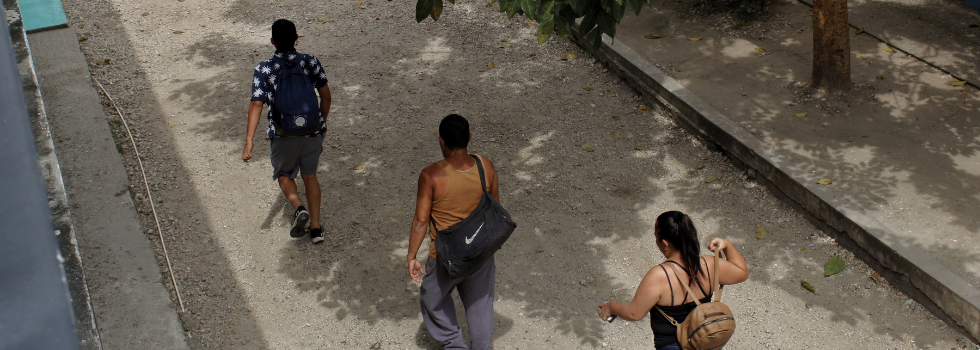“Humanity anxiously awaits the revelation of the son of God. She was subjected to failure, not voluntarily, but by the imposition of another; but this humanity has the hope; that she will be freed from the slavery of corruption to obtain the glorious freedom of the children of God”
(Rom 8,19-20)
In the house of the migrant of the “72”, in Tenosique, when the migrants arrive, the first step is to receive them and seat them in a space destined for those who enter and receive some primary indications of the shelter. They pass to the registry of their data, all with lost eyes, anxious, fearful, insecure, sad, scared, and other feelings, along with having walked hours, many times with sore feet.
As the minutes, hours, and days go by in the migrants, love-made hope is emerging from within them. Those feelings that disrupt the human being and that, at the same time, are part of the human being as a whole and go together with the other noble feelings of struggle, resistance, solidarity, compassion, and hope.
Hope that acts together with fear, anxiety, and sadness are a flame that drives to more, to illuminate life while walking.
Hope that exists in the depths of every migrant who looks north, not because they want to live in a highly consumerist, double standard, warlike and xenophobic society, but looking for the north of their lives, which together with their families want to reach a horizon that will give them a better life.
Hope pushes beyond being a survivor, but a human being with deep desires to live with quality and dignity their existence.
Hope leads a pregnant mother to carry her three small children while she walks to meet her partner to continue forming a home.
Hope generates the smiles of the children who play while on the road, who laugh and joke with everyone they meet and spend time sharing with other migrants who, in the end, are equal in their humanity.
Hope of trusting in a God who walks with them, present in all this pilgrimage of this forced exodus.
Hope in each young migrant, who continues to look beyond, even with the pain of having left the house where they grew up, where they cried, smiled, and played.
Hope in the families that go to meet others, families that have nowhere to go, but know where they are going, the families that join with another family in this journey, where they share and open themselves to other cultural experiences.
Hope that tomorrow will be better than today of establishing their home in another land but feeling that it is the same “Mother Earth” that takes care of them and welcomes them.
Hope when they take their backpack and titanates and leave the “72” to follow their paths, carrying the collective hope with those who shared their life of friendliness in the refuge.
Hope that goes inside their backpacks, full of stories, memories, kisses, hugs, and clothes that accompany them on this road of life.
Hope when in the legal procedures to obtain the refuge in Mexico, they manage to overcome with resistance, courage, and perseverance an office that acts with wearing bureaucracy and insensitivity, obtaining the humanitarian visa to stay traditionally.
Hope was founded on Jesus, the first hopeful who overcame exclusion, social division, and religious dualism. Hope arises from Jesus, who acted liberating, giving life and life in abundance.
Fr. René Arturo Flores, OFM
Memoirs, Tenosique, 2018
Photos: Eric Luna


